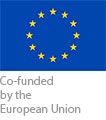Misleading practices
Have you been a victim of fraud? You’re not alone. In fact, the number of victims is growing rapidly, because scammers are becoming ever more professional.
That’s why ECC Belgium is working to fight fraud and tackle the scammers who are flouting legislation. While dishonest practices, scams, fraud and deception may be distinct crimes, for you as a consumer, they all mean the same thing. Because victims are unlikely to see their money again.
When there are so many scams that are constantly evolving and getting more convincing, it’s vital that we warn and inform people as clearly as possible.
ECC Belgium mediates between consumers and traders — including when misleading practices are involved. The chances of success in such cases are slim, however. You can’t negotiate with fraudsters and scammers. So you’ll find advice here that will help you arm yourself against them, and we’ll offer answers to questions like:


